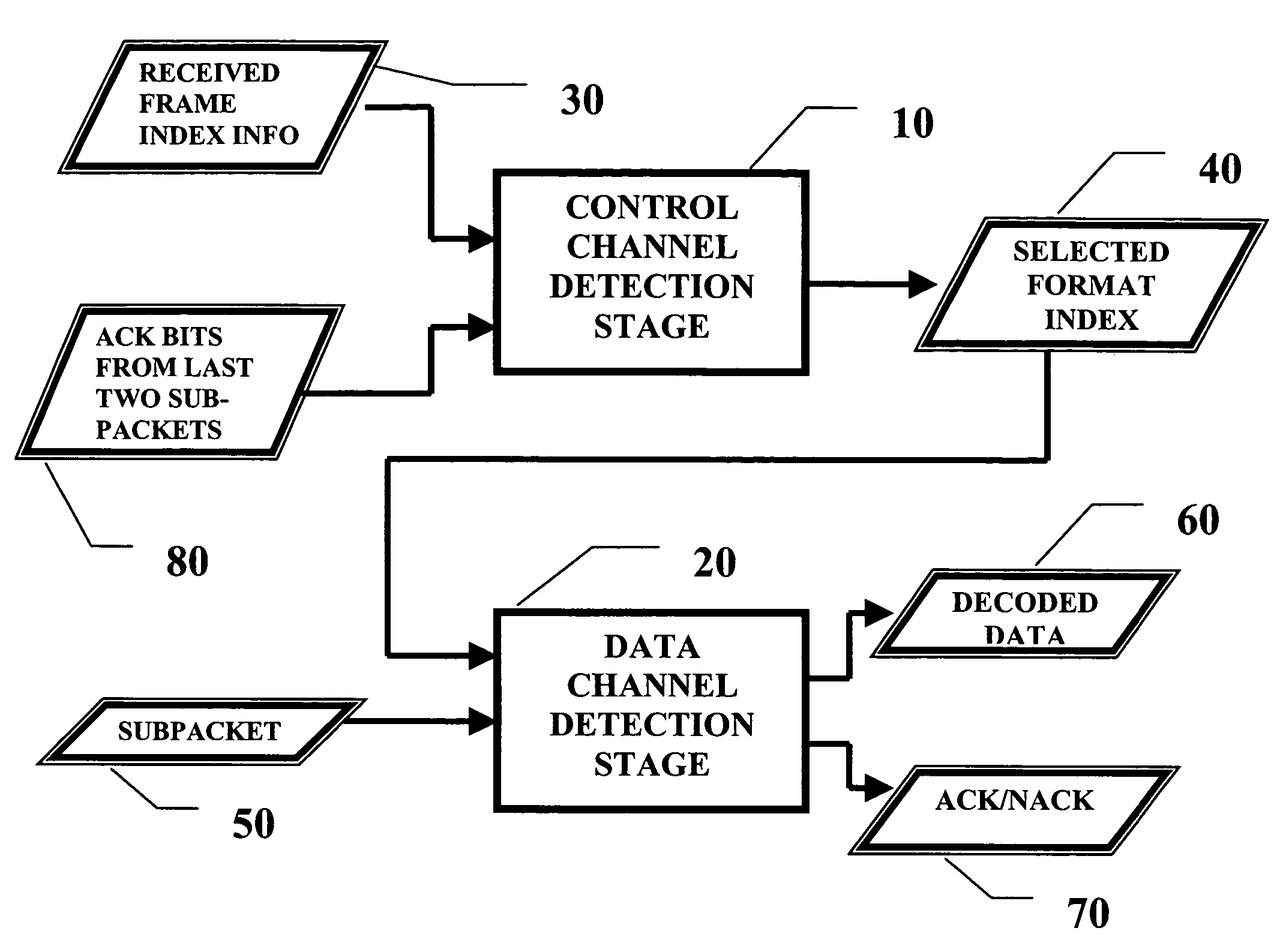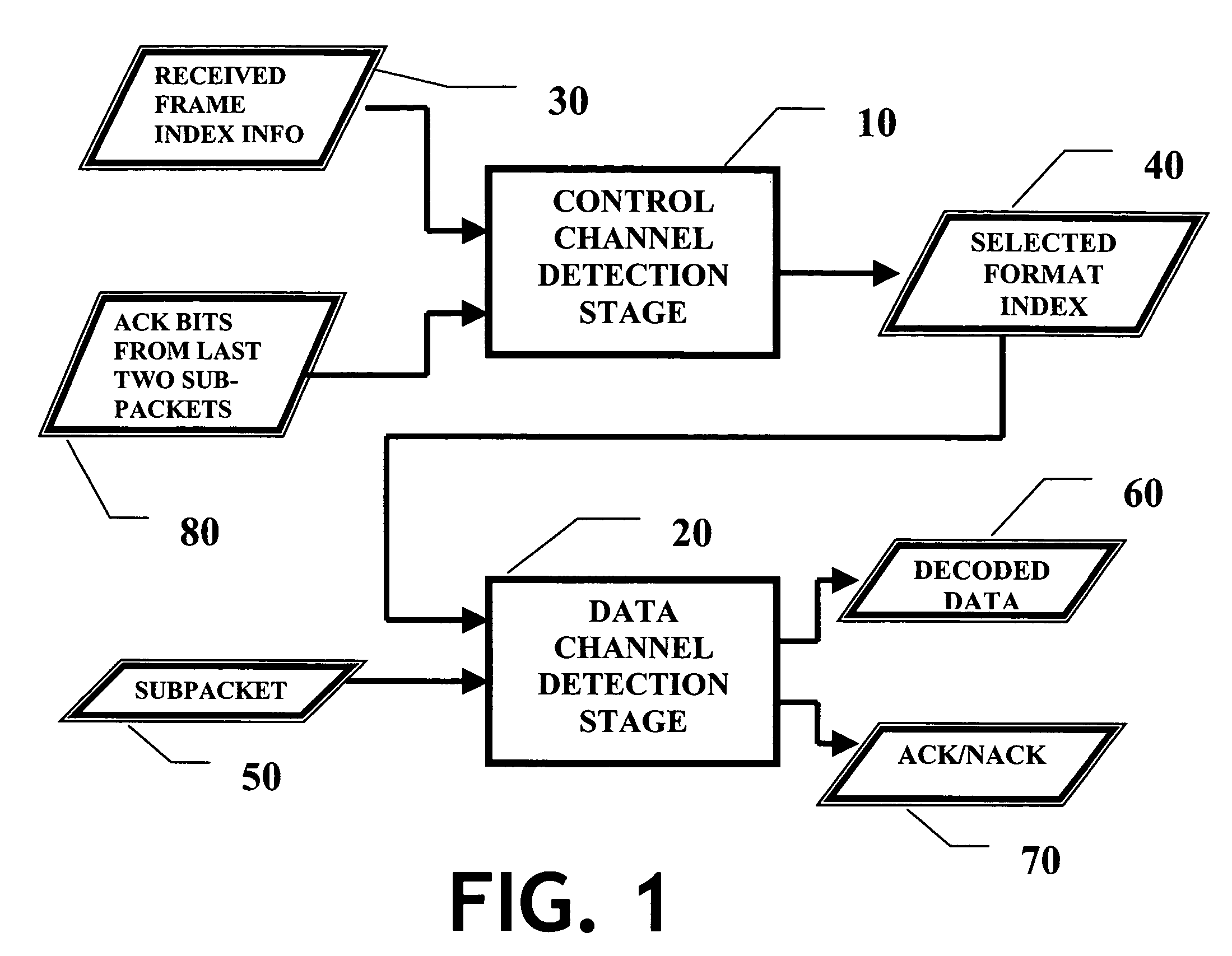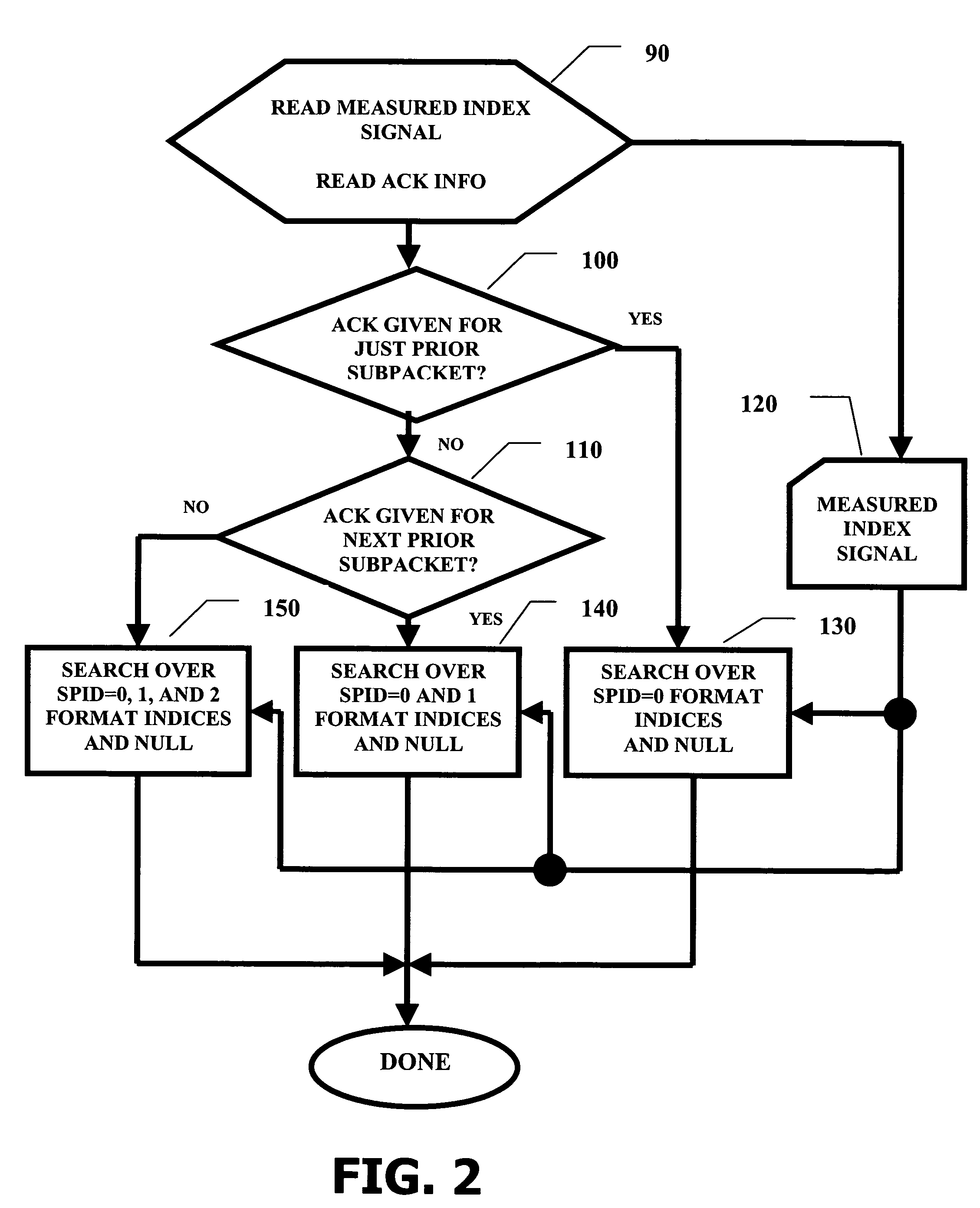Reception method for packetized information with automatic repeat request
a packetized information and automatic repeating technology, applied in the field of packetized communication systems, can solve problems such as failure of decoding attempts, and achieve the effect of improving the reliability of decoding
- Summary
- Abstract
- Description
- Claims
- Application Information
AI Technical Summary
Benefits of technology
Problems solved by technology
Method used
Image
Examples
Embodiment Construction
[0016]The principles of the present invention apply generally to packetized communication in networks in which packets or the like can be subjected to requests for repeat transmission, and in which repeat transmissions of an original packet can include redundant bits not present in the original packet. Such networks may be, without limitation, optical, wireline, or wireless networks.
[0017]For purposes of illustration, we will hereinbelow describe an embodiment of the invention in a wireless CDMA network, in the context of reverse link, or “uplink” transmission of data packets from a mobile station to a base station. Various protocols to be mentioned below are associated with the standard CDMA2000 RevD. Consonant with the nomenclature adopted there, we use the term “subpacket” to mean a packetized data sequence that is subject to retransmission with a different number of redundant bits, or a packetized data sequence that is the result of such retransmission.
[0018]With reference to FI...
PUM
 Login to View More
Login to View More Abstract
Description
Claims
Application Information
 Login to View More
Login to View More - R&D
- Intellectual Property
- Life Sciences
- Materials
- Tech Scout
- Unparalleled Data Quality
- Higher Quality Content
- 60% Fewer Hallucinations
Browse by: Latest US Patents, China's latest patents, Technical Efficacy Thesaurus, Application Domain, Technology Topic, Popular Technical Reports.
© 2025 PatSnap. All rights reserved.Legal|Privacy policy|Modern Slavery Act Transparency Statement|Sitemap|About US| Contact US: help@patsnap.com



